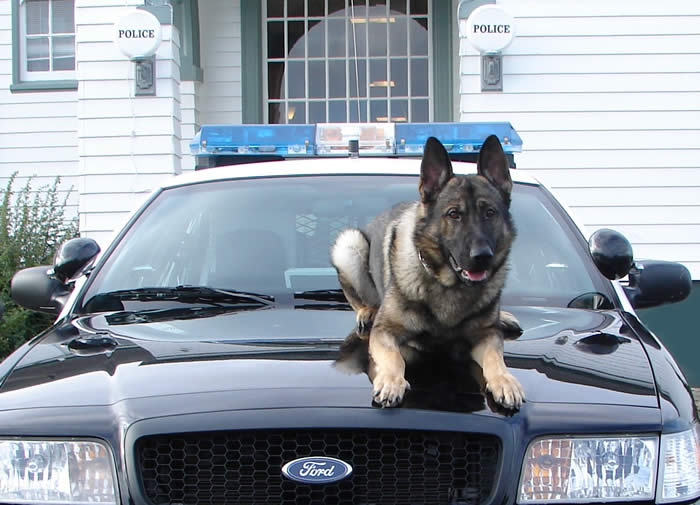Police can’t prolong traffic stops for drug dogs
 In Rodriguez v. United States, the U.S. Supreme Court has placed limits on prolonging traffic stops. No longer can police extend a stop to call in drug dogs to sniff the outside of your vehicle once the purpose of the stop is complete. Remember, the Court has already decided that sniffing around the outside of a vehicle is not a search despite the fact that it is aimed at “detecting evidence of ordinary criminal wrongdoing.”
In Rodriguez v. United States, the U.S. Supreme Court has placed limits on prolonging traffic stops. No longer can police extend a stop to call in drug dogs to sniff the outside of your vehicle once the purpose of the stop is complete. Remember, the Court has already decided that sniffing around the outside of a vehicle is not a search despite the fact that it is aimed at “detecting evidence of ordinary criminal wrongdoing.”
So how do we now analyze these types of cases? It begins with the “mission” of the traffic stop. Justice Ginsburg said:
Like a Terry stop, the tolerable duration of police inquiries in the traffic-stop context is determined by the seizure’s “mission”—to address the traffic violation that warranted the stop, Caballes, 543 U. S., at 407, and attend to related safety concerns, infra, at 6-7. See also United States v. Sharpe, 470 U. S. 675, 685 (1985); Florida v. Royer, 460 U. S. 491, 500 (1983) (plurality opinion) (“The scope of the detention must be carefully tailored to its underlying justification.”). Because addressing the infraction is the purpose of the stop, it may “last no longer than is necessary to effectuate th[at] purpose.” Ibid. See also Caballes, 543 U. S., at 407. Authority for the seizure thus ends when tasks tied to the traffic infraction are—or reasonably should have been—completed. See Sharpe, 470 U. S., at 686 (in determining the reasonable duration of a stop, “it [is] appropriate to examine whether the police diligently pursued [the] investigation”).
Beyond determining whether to issue a traffic ticket, an officer’s mission includes “ordinary inquiries incident to [the traffic] stop.” Caballes, 543 U. S., at 408. Typically such inquiries involve checking the driver’s license, determining whether there are outstanding warrants against the driver, and inspecting the automobile’s registration and proof of insurance. See Delaware v. Prouse, 440 U. S. 648, 658-660 (1979). See also 4 W. LaFave, Search and Seizure §9.3(c), pp. 507-517 (5th ed. 2012). These checks serve the same objective as enforcement of the traffic code: ensuring that vehicles on the road are operated safely and responsibly. See Prouse, 440 U. S., at 658-659; LaFave, Search and Seizure §9.3(c), at 516 (A “warrant check makes it possible to determine whether the apparent traffic violator is wanted for one or more previous traffic offenses.”).
So the stated mission of a traffic stop is to address the traffic violation and to attend to related safety concerns. This means police can:
- Check for a drivers license;
- Inspect the registration and proof of insurance; and
- Determine if there are outstanding warrants against the driver.
What this case resolves is whether police can extend a traffic stop outside the mission of the stop. The court answered clearly, No they cannot. They can’t wait for a K-9 vehicle to arrive or, as in this case, bring out there own K-9 to the incident location past the completed traffic stop. If this does occur then they fall afoul of the Fourth Amendment. Some circuits had held that any detention following a traffic stop was “de minimis” and not unreasonable if it was only say 7-8 minutes in duration. That practice has been stopped and any duration even two seconds is a violation of the 4th amendment if the mission of the stop has been completed.
Can police still use drug dogs?
Yes, under two circumstances. First, if it is during the traffic stop, meaning before the ticket has been written. Second, they can use a drug dog after the completed traffic stop if they have reasonable suspicion to detain a person further. As with all Fourth Amendment cases this will be analyzed on a case-by-cases basis on the facts.
Charleston Criminal Defense Attorney
If you have a search and seizure issue in your case call an experienced and trusted Charleston criminal defense lawyer at the Dale Savage Law Firm today for a free case consultation (843) 530-7813.

